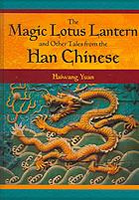Proverbs |
Annotation
And Connotations |
- A
mantis stalking a cicada is unaware of an oriole behind.
(Chinese original: 螳螂捕蝉,黄雀在后; Chinese Pinyin:  Tángláng
bǔ chán, huángquè zài hòu.) Tángláng
bǔ chán, huángquè zài hòu.)
|
- While
coveting gains ahead, one should be aware of the danger behind.
|
- You
looked high and low till your iron shoes were worn out but
still to no avail. Then you chanced upon it without ever
looking.
(Chinese original: 踏破铁鞋无觅处,得来全不费功夫; Chinese Pinyin:  Tà pò tiěxié wú mì chù, délái quán bù fèi gōngfu.) Tà pò tiěxié wú mì chù, délái quán bù fèi gōngfu.)
|
- You looked
for something everywhere but could not find it. All of a sudden you
chanced upon it. Have you had this experience? I bet you have
|
- No
banquet in the world that never ends.
(Chinese original: 天下没有不散的宴席; Chinese Pinyin:  Tiānxià
méiyǒu bù sàn de yànxí.) Tiānxià
méiyǒu bù sàn de yànxí.)
|
- Nothing
in the world is eternal. Friendship, relations and a good time are no
exceptions
|
Crows
everywhere are equally black.
(Chinese original: 天下乌鸦一般黑; Chinese Pinyin:  Tiānxià
wūyā yībān hēi.) Tiānxià
wūyā yībān hēi.) |
It
is a metaphorical statement of "Bad people are bad no matter where you
find them because human nature never changes". |
- Perseverance
can reduce an iron rod to a sewing needle.
(Chinese original: 铁杵磨成针; Chinese Pinyin:  Tiěchǔ
mó chéng zhēn.) Tiěchǔ
mó chéng zhēn.)
|
- See the story in my book The Magic Lotus Lantern and Other Tales from the Han Chinese.
|
- Dream
different dreams on the same bed.
(Chinese original: 同床异梦; Chinese Pinyin:  Tóng-chuáng-yì-mèng.) Tóng-chuáng-yì-mèng.)
|
Hide
different purposes behind the semblance of accord. |
- Fail
to steal a chicken, which instead ate up your bait.
(Chinese original: 偷鸡不成反蚀一把米; Chinese Pinyin:  Tōu jī bùchéng fǎn shī yī bǎ mǐ.) Tōu jī bùchéng fǎn shī yī bǎ mǐ.)
|
- Kind
of like "Shoot Your Own Feet". Starting out to hurt others but ending
up in being hurt.
|
- Steal
beams and replace them with poles.
(Chinese original: 偷梁换柱; Chinese Pinyin:  Tōu-liáng-huàn-zhù.) Tōu-liáng-huàn-zhù.)
|
- In so
doing, the devious contractors are perpetrating a fraud. The proverb
is also extended to any deception involving the replacement of one thing
with another.
|
- An
unfolded map reveals a dagger.
(Chinese original: 图穷匕见; Chinese Pinyin:  Tú-qióng-bì-xiàn.) Tú-qióng-bì-xiàn.)
|
- See the story in my book The Magic Lotus Lantern and Other Tales from the Han Chinese.
|
- A
Fox grieves over the death of a rabbit.
(Chinese original: 兔死狐悲; Chinese Pinyin:  Tù-sǐ-hú-bēi.) Tù-sǐ-hú-bēi.)
|
- The proverb
is used derogatorily to refer to the forlornness that bad people feel
upon learning the misfortune of their like.
|
- Rabbits
do not eat the grass around their burrows.
(Chinese original: 兔子不吃窝边草; Chinese Pinyin:  Tùzi
bù chī wō biān cǎo.) Tùzi
bù chī wō biān cǎo.)
|
- The proverb
is used derogatorily. It is believed that a villain usually does not
harm his neighbors.
|
- Even
a rabbit may bite when cornered.
(Chinese original: 兔子急了也咬人; Chinese Pinyin:  Tùzi
jí le yě yǎo rén.) Tùzi
jí le yě yǎo rén.)
|
One who is cornered can do anything. |
- A
flea on the top of a bald head - it is only too apparent.
(Chinese original: 秃子头上的虱子—明摆着的事; Chinese
Pinyin:  Tūzi tóu shàng de shīzi - míngbǎi zhe de shì.) Tūzi tóu shàng de shīzi - míngbǎi zhe de shì.)
|
- A crane
is too obvious when it stands among a flock of chickens and looks very
awkward. It is also true with a camel amidst a flock of sheep and a
flea when it stands on top of a hairless head. They all carry a pejorative
tone: the thing that out stands others is something awkward if not necessarily
bad.
|





